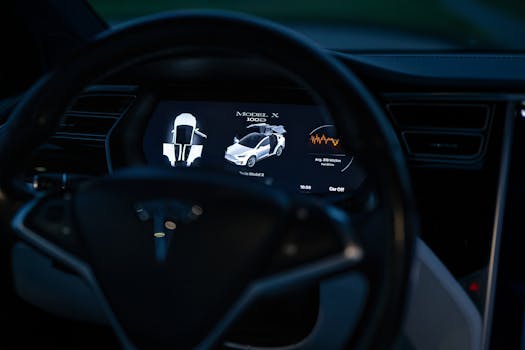The automotive industry is experiencing a transformative shift driven by digital tools. These technologies are revolutionizing how vehicles are designed, manufactured, and sold. Along with improving efficiency, they enhance customer experience and promote sustainability.
The integration of digital tools is not only reshaping internal processes but also impacting how consumers interact with brands. From online vehicle configurations to in-car connectivity, these innovations are catering to an evolving market. As consumers demand more personalized experiences, automotive companies are leveraging digital tools to meet these expectations.
This article delves into the impact of digital tools on the automotive industry. By exploring various aspects—ranging from design and manufacturing to marketing and sales—the article highlights how these technologies are paving the way for a smarter, more efficient future.
Redefining Automotive Design through Digital Tools
Digital tools have drastically changed the automotive design process. With software programs offering advanced modeling capabilities, designers can explore innovative concepts more freely. This increased creativity not only speeds up product development but also enhances collaboration among teams.
By utilizing 3D modeling and simulation, engineers can identify potential issues earlier in the design phase. This proactive approach leads to more robust vehicles and reduces the likelihood of costly revisions. Additionally, using virtual reality allows designers to present ideas in immersive ways for better client feedback.
The introduction of generative design software also encourages engineers to push boundaries. This technology uses algorithms to optimize designs, resulting in lighter and more efficient vehicles. As a result, automotive designs are becoming smarter and more efficient, directly impacting performance.
Consumers are increasingly involved in the design phase through digital visualization tools. Brands allow potential buyers to customize features and visualize their choices, ensuring a more personalized experience. This interactivity fosters a stronger emotional connection between consumers and brands.
As digital tools continue to evolve, the possibilities for automotive design are endless. Integrating cutting-edge technologies will lead to exciting innovations, catering to an audience that craves unique, personalized experiences.
The Shift in Manufacturing Processes
Manufacturing in the automotive sector has undergone a significant transformation due to digital tools. Automation and robotics streamline production lines, enhancing efficiency and accuracy. This shift reduces human error and allows for faster assembly times.
Smart factories equipped with IoT devices enable real-time data analysis and feedback. Manufacturers can monitor production processes, predicting maintenance needs and minimizing downtime. This data-driven approach leads to a more agile and responsive manufacturing process.
Moreover, additive manufacturing, or 3D printing, is revolutionizing parts production. Automakers can produce prototypes and even final products more rapidly. This process not only decreases waste but also allows for more complex and customized designs.
Digital twin technology is another innovative development in automotive manufacturing. By creating a virtual replica of production processes, companies can simulate changes and optimize operations without disrupting actual manufacturing. This predictive capability enhances performance and efficiency substantially.
As digital tools continue to advance, they foster a culture of continuous improvement in manufacturing. This evolution is crucial for meeting the demands of a fast-changing automotive market and enhancing competitiveness.
Enhancing Customer Experience through Digital Tools
Digital tools are significantly enhancing customer experience in the automotive industry. From online research to post-purchase services, customers now have more access to information and options than ever before. This shift empowers consumers to make informed decisions.
Virtual showrooms and online vehicle configurators allow buyers to explore car models without stepping into a dealership. These tools provide a seamless experience that saves time and effort. Customers can compare features and prices at their convenience.
Moreover, customer service has evolved thanks to digital tools. Chatbots and AI-driven customer support systems are available 24/7 to answer queries. This immediate access to assistance enhances satisfaction and builds a trustful relationship between brands and customers.
Social media platforms also play a role in shaping customer experience. Brands can engage directly with consumers, building communities around their products. Feedback gathered through social media can guide improvements and foster brand loyalty.
As customer preferences continue to change, automotive companies must embrace innovations to meet these demands. Focusing on enhancing customer experience through digital tools will remain a priority moving forward.
Marketing and Advertising in the Digital Age
The automotive industry’s marketing strategies have evolved dramatically due to digital tools. Traditional methods have shifted to targeted online campaigns that reach specific consumer segments. This targeted approach maximizes return on investment.
Social media advertising allows for highly customizable ads based on user behavior and preferences. Automotive brands can engage audiences with captivating content that resonates with them. This personalized marketing fosters a deeper connection with potential buyers.
Data analytics plays a crucial role in shaping marketing strategies. By analyzing consumer data, automotive companies can identify trends and optimize campaigns accordingly. This data-driven approach enhances the effectiveness of marketing efforts.
Influencer partnerships have also gained traction in automotive marketing. Collaborating with influencers allows for authentic storytelling that aligns with target audiences. Such partnerships enhance brand credibility and reach, attracting potential buyers more effectively.
As digital marketing evolves, automotive brands must adapt their strategies to stay relevant. Embracing new technologies will ensure their messaging resonates with today’s consumers, driving engagement and sales.
Streamlining Sales Processes through Digital Transformation
Digital transformation is streamlining sales processes in the automotive industry significantly. Online sales platforms have emerged, allowing consumers to purchase vehicles without visiting a dealership. This convenience meets the demand for simpler purchasing experiences.
Digital retail tools enable transparent pricing and financing options, empowering consumers to make informed decisions. By offering clear, accessible information, brands build trust and enhance customer satisfaction. This straightforward process fosters loyalty and long-term relationships.
Online trade-in assessments are another beneficial digital tool. Customers can evaluate their current vehicle’s value effortlessly, facilitating the trade-in process. This convenience encourages potential buyers to consider purchasing a new vehicle.
Moreover, virtual consultations with sales representatives create a more personalized sales experience. Customers can engage with knowledgeable staff from the comfort of their homes, receiving tailored advice. This relationship building adds value to the purchasing experience.
As the sales landscape continues to shift, automotive brands must embrace digital tools to remain competitive. Implementing these strategies will cater to evolving consumer demands, enhancing overall satisfaction.
Improving Automotive Safety and Maintenance
Digital tools are significantly improving safety within the automotive industry. Advanced driver-assistance systems (ADAS) utilize sensors and AI to enhance vehicle safety. These technologies help prevent accidents and save lives by alerting drivers to potential hazards.
Moreover, connected vehicles analyze real-time data to report on performance and potential issues. This capability allows for proactive maintenance, ensuring vehicles are safe and reliable on the road. Such advancements enhance the driver experience and reduce unexpected breakdowns.
Telematics systems provide valuable insights into driving behavior and vehicle health. Automotive companies can leverage this information for better maintenance strategies. This personalized approach ensures vehicles remain in optimal condition, enhancing safety and longevity.
Digital tools also facilitate better communication between manufacturers and consumers. Regular software updates can enhance vehicle features and safety, keeping drivers informed. This ongoing connection fosters trust and reassurance among vehicle owners.
As technology continues to advance, improving safety and maintenance will remain a priority for the automotive industry. Those who embrace these changes will significantly enhance their reputations and customer satisfaction.
Conclusion
Digital tools are shaping the future of the automotive industry in profound ways. From design and manufacturing to customer experience and safety, these technologies are driving innovations that meet modern consumer demands. As the industry continues to evolve, the integration of digital tools will play a crucial role in ensuring competitiveness and satisfaction.
Embracing the full potential of digital technologies will lead to enhanced efficiency, safety, and customer experiences in the automotive sector. In an increasingly connected world, adaptability will be key to sustaining success.
Ultimately, the impact of digital tools will not only redefine how cars are created and sold but will also transform the way consumers experience transportation. The journey ahead is exciting, and the automotive industry is well-positioned for a remarkable digital future.


